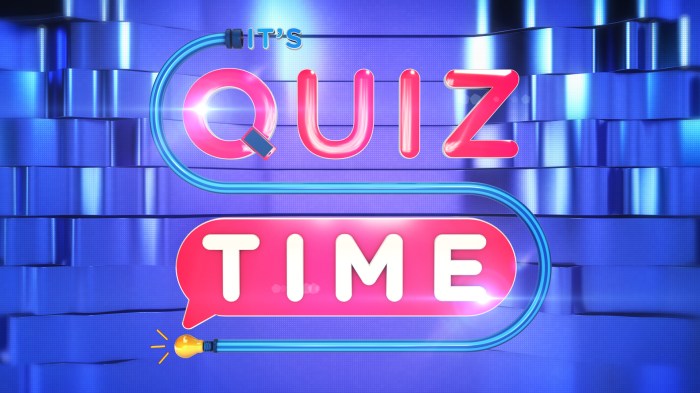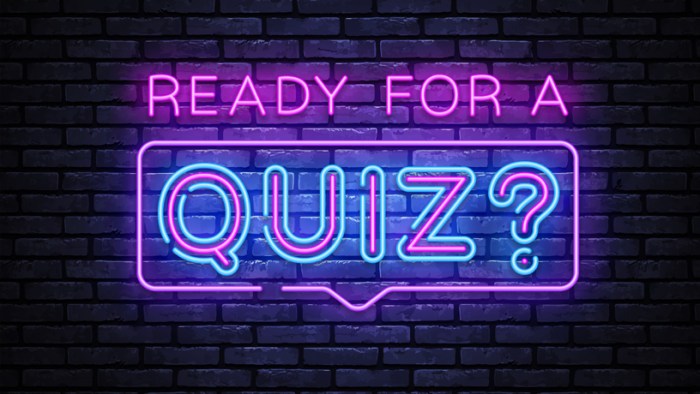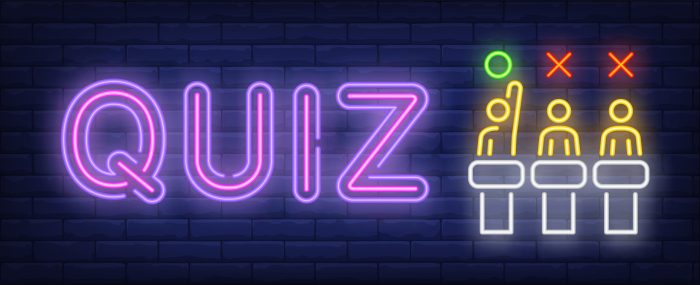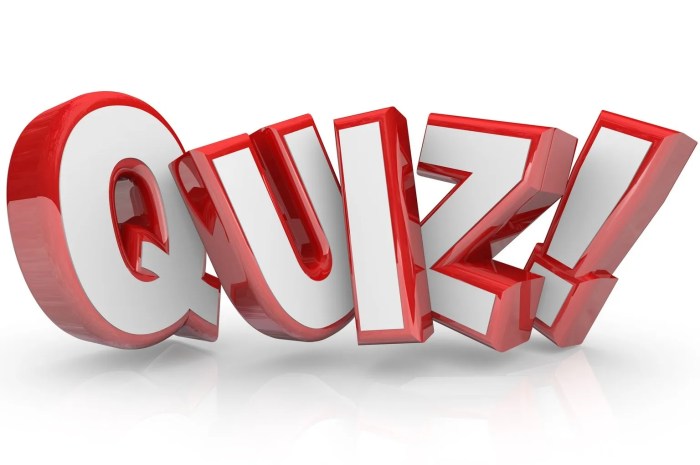What is the main ingredient in quiz – At the heart of every captivating quiz lies a main ingredient, a vital element that breathes life into the questions and fuels the engagement of participants. This component plays a pivotal role in determining the effectiveness of a quiz, shaping its structure, content, and overall impact.
From multiple-choice conundrums to thought-provoking open-ended challenges, the main ingredient manifests itself in diverse forms, adapting to the unique demands of each quiz type. It serves as the cornerstone of effective quiz design, guiding the creation of questions that pique curiosity, challenge assumptions, and ultimately foster learning and retention.
What is the Main Ingredient in a Quiz?: What Is The Main Ingredient In Quiz

A quiz is an assessment tool that tests knowledge or skills. It typically consists of a series of questions with multiple choice, true/false, fill-in-the-blank, or open-ended answers. The main ingredient in a quiz is the question itself.
The question is the foundation of a quiz. It determines the type of quiz, the difficulty level, and the effectiveness of the assessment. A well-crafted question can engage the learner, promote critical thinking, and provide valuable insights into their understanding.
Types of Quizzes
There are various types of quizzes, each with its unique set of questions. The most common types include:
- Multiple Choice:Presents several options for an answer, with only one correct response.
- True/False:Requires learners to determine whether a statement is true or false.
- Fill-in-the-Blank:Provides a sentence or question with missing words or phrases that learners must complete.
- Open-Ended:Allows learners to provide their own answers in their own words.
The type of quiz determines the nature of the questions and the main ingredient.
Components of a Quiz, What is the main ingredient in quiz
A quiz typically consists of the following components:
- Questions:The main ingredient and the foundation of the quiz.
- Answers:The correct or expected responses to the questions.
- Scoring System:Determines how points are awarded for correct answers and penalties for incorrect answers.
The main ingredient, the questions, drives the other components and determines the overall effectiveness of the quiz.
Design Considerations
When designing a quiz, several key considerations should be taken into account:
- Clarity and Conciseness:Questions should be clear, concise, and unambiguous.
- Variety and Balance:Include a variety of question types and difficulty levels to maintain learner engagement.
- Relevance:Questions should be relevant to the topic being assessed and the learning objectives.
- Time Constraints:Set appropriate time limits to prevent learners from spending excessive time on individual questions.
Optimizing the main ingredient, the questions, is crucial for effective quiz design.
Examples of Quizzes
Well-designed quizzes effectively utilize the main ingredient, the questions, to achieve specific assessment goals. Here are a few examples:
- Multiple Choice Quiz on Historical Events:Tests learners’ knowledge of key historical events through multiple choice questions.
- True/False Quiz on Scientific Concepts:Assesses learners’ understanding of scientific concepts by presenting true or false statements.
- Fill-in-the-Blank Quiz on Literary Analysis:Requires learners to complete sentences or phrases related to literary analysis.
- Open-Ended Quiz on Ethical Dilemmas:Encourages learners to critically analyze ethical dilemmas and provide their own perspectives.
These examples demonstrate the diverse applications of the main ingredient, the questions, in different types of quizzes.
Best Practices
To enhance quiz effectiveness, it is essential to follow best practices:
- Use clear and unambiguous language:Avoid ambiguous or confusing wording.
- Provide clear instructions:Explain the quiz format, scoring system, and time limits.
- Proofread carefully:Check for any errors in grammar, spelling, or punctuation.
- Pilot the quiz:Conduct a pilot run to identify any issues and make necessary adjustments.
By adhering to these best practices, educators can ensure that the main ingredient, the questions, contributes to a high-quality and effective quiz.
Essential FAQs
What constitutes the main ingredient in a quiz?
The main ingredient in a quiz is the central element that determines the nature and effectiveness of the quiz. It encompasses the question format, content, and scoring system, shaping the overall experience for participants.
How does the main ingredient vary across different quiz types?
The main ingredient adapts to the specific requirements of each quiz type. For example, in multiple-choice quizzes, it manifests as a clear and concise question stem with well-defined answer options. In open-ended quizzes, it takes the form of thought-provoking prompts that encourage participants to elaborate their responses.
What are some best practices for using the main ingredient in quizzes?
Best practices include crafting questions that are relevant to the learning objectives, providing clear instructions, and using a scoring system that aligns with the intended purpose of the quiz. Additionally, incorporating elements of surprise and creativity can enhance engagement and foster a positive learning environment.


